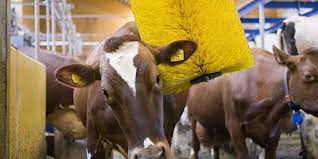Last month, I wrote about how google was failing to deal with climate change deniers, now there is a similar related problem.
Google allows advertisers to pay to have their advert appear as though it is a search result. One in 5 ads served on 78 climate related terms were placed their by fossil fuel companies.
The study looked at 1600 articles and found that 20% of the adverts were placed by fossil fuel companies.
A survey back in 2020 found that more than half of those using this service could not tell the difference between the search results and these ‘disguised’ adverts.
Exxonmobil, shell, aramco, Mckinsey, and goldman sachs were among the top users along with a handful of other fossil fuel providers and their financiers.
This is highly concerning. Having been forced to abandon their ridiculous claim that global warming was not happening, they are now trying to influence the discussion of decarbonisation in their favour. Far and away the most regular seen ad was Shells which were seen 156 times, and appeared on 86% of the searches for “net zero” They also kept highlighting their promise to be net zero by 2050 and to align itself with the 1.5 degrees C target (something that virtually all scientists agree are incompatible – you cannot aim for 2050 net zero and 1.5 as waiting till 1050 guarentees we blow straight past the 1.5.
Furthermore, Shells only way to reach net zero appears to be through offsets. They intend to continue to extract coal oil and gas until the end of the century.
How can we reach a concensus about where we are trying to go in fighting climate change if so many people are being fed lies.
I believe that it is time to take google at its word. If they wont stop listing these sorts of lies, then they must be treated with the same contempt as the fossil fuel companies. Further more googles future must be the same – change or go extinct. The current problem is that google is such a dominant player in search and advertising, at the moment it is hard to avoid them.
Now, I should add that I did a quick search, and was not possible to duplicate these results. Further more, i got the same results in incognito. I am unsure if google has tweaked its algorithm since yesterday, but this is part of the problem. Given that a small tweak can transform the results, it is hard to get a proper window into googles behaviour.
We need more openness from google. They are making great strides towards taking their business to carbon zero. However, if they continue to influence the rest of the world to not do so, I believe that a significant amount of the blame is retained. Do they want to be seen as a green advocate? or as a climate change denier. It is not possible to sit on the fence, climate change denial needs to be demoted in their search terms.













